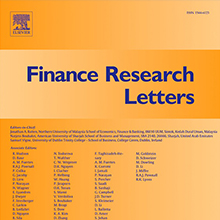본문
Do individual traders undermine firm valuation?

By Prof. Paul Moon Sub Choi (paul.choi@ewha.ac.kr)
Division of Business Administration
Professor Choi's recent publication, "Do individual traders undermine firm valuation?" in Finance Research Letters, is an empirical research on the value diminishing effect of individual trading on the market values of companies listed on stock exchanges in Korea.
In some advanced emerging markets such as South Korea and Taiwan, individual investors are overwhelmingly dominant on stock exchanges. Corporate financial managers might view liquidity-providing individual investors as a double-edged sword, saying, for example, “Individual traders are helpful as counter parties to long-term investors, but wouldn’t their excessive day-trading hurt firm value?” Because theoretical and empirical studies identify individual investors as a source of noise trader risk, Professor Choi investigates whether individual trading undermines firm valuation. This research proxies for individual investors’ noise trader risk using the proportion of their trading volume, an intuitive and simple measure.
Although evidence of informed trading by individual investors is growing, Korea’s stock market provides a unique environment in which individual investors are likely to be uninformed compared to other investor groups. First, unlike other developed stock markets, emerging markets typically have fragile financial systems or weak legal protections for individual investors. Notably, the Korean economy is dominated by chaebols—family-controlled business groups—whose complex and opaque governance requires costly monitoring, thereby reducing investors’ monitoring incentive. Managers may therefore behave opportunistically, exacerbating information asymmetry, especially for individual investors with small shareholdings. Hence, individual investors’ informational disadvantages and their consequent noise trading can be more pronounced in this environment. Second, Korea’s individual investor trading volume is among the highest worldwide, whereas trading in the U.S. market is largely dominated by institutional investors. In the sample of the study, spanning January 2000 to December 2015, individual investors accounted for nearly 80% of total trading volume and more than 60% of total trading value. Thus, the Korean stock market provides an intriguing environment for studying the impact of individual investor trading under informational disadvantages.
Professor Choi previously argued that the individual trading weight (ITW)—the proportion of a stock’s total volume attributable to individuals—can proxy for noise trader risk to explain common stock returns. They show that an excess high-minus-low factor for portfolios in the ITW significantly explains sorted portfolio returns in the Korean and Taiwanese stock markets. Professor Choi, in another study, finds that the ITW is a compelling risk factor for preferred stock discounts in the Korean market. Following these recent studies, the ITW is used to proxy for individual investors’ noise trader risk in the Korean market. As the sub-optimal trading behavior of uninformed individuals creates unhedgeable and systemic risks, the perceived discount rate should be greater for stock listings with relatively high concentrations of individual trading. Additionally, uninformed individual investors’ tendency to “gamble” in stocks likely destabilizes firm value, creating downward risk. Professor Choi therefore empirically investigate the potential negative association between the individual trading proportions and valuations of Korean listed companies.
The study focuses on the Korean market partially because it is among the few advanced emerging markets, including Taiwan, whose stock exchanges explicitly record individual, institutional, and foreign investors’ trading volumes. As a result, noise trader risk, proxied by the ITW, has a dominant, detrimental impact on the market values of exchange-traded equities. This result is robust to controlling for corporate governance, institutional monitoring, firm size, accounting ratios, idiosyncratic volatility, and a battery of liquidity measures.
There are some useful policy implications. As abundant liquidity is necessary for price discovery, this study does not suggest the direct remedy of regulating seemingly behaviorally-biased or sub-optimal individual traders. However, domestic institutional and foreign investors are underrepresented minorities in some advanced emerging markets, including South Korea and Taiwan. Having identified the influences of institutional ownership and corporate governance on firm valuation, promoting active institutional monitoring and implementing sound corporate governance measures can steer firm valuations in desirable and fair directions. Finally, foreign investors’ contributions to enhancing market efficiency should be facilitated by alleviating the sovereign discount due to the opaque rule of law, limited investor protections, and so on.

* Related Article
Choi, P.M.S., Choi, J.H., Chung, C.Y., 2020. Do individual traders undermine firm valuation?, Finance Research Letters 36, 101567.
* References
Park, C., Choi, P.M.S., Choi, J.H., 2019. Is individual trading priced in the preferred stock discount?, Emerging Markets Review 38, 326-346.
Choi, P.M.S., Choi, J.H., 2018. Is individual trading priced in stocks?, Journal of International Money and Finance 85, 76-92.
